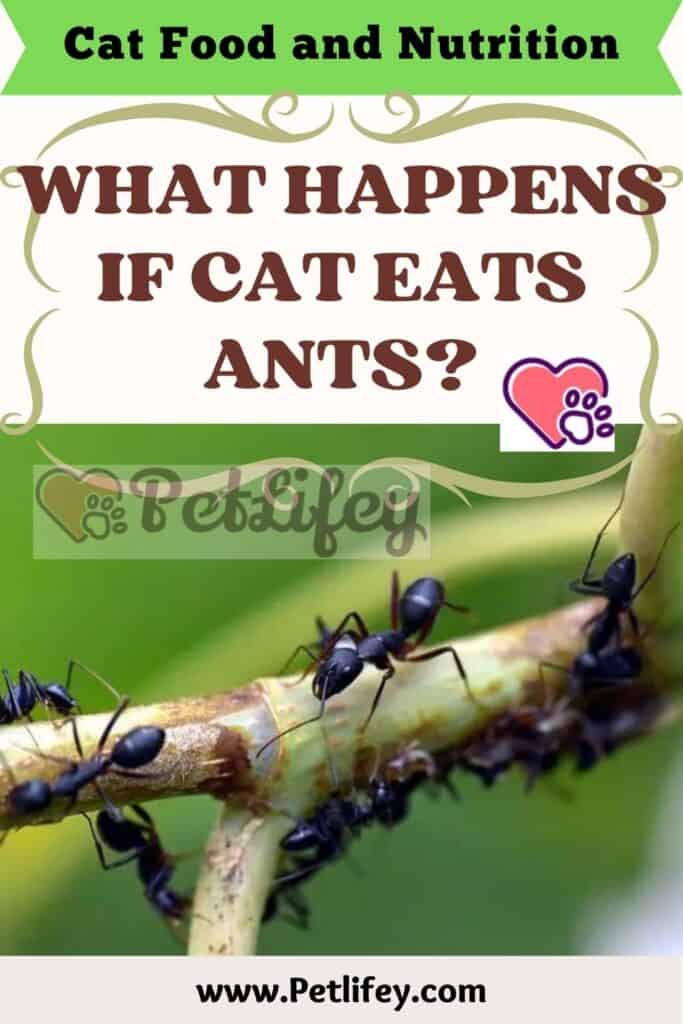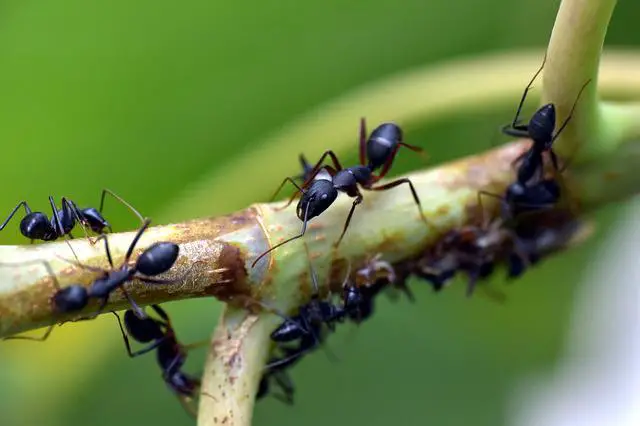
Is it just curiosity or a desire to test your hunting instincts? What to know about the causes, risks and effects of insects on your cat when a cat eats ants.
The cat is a hunter, we know and has in its DNA the desire to hunt down anything that moves under its whiskers. But that doesn’t mean that everything he manages to catch and ingest is harmless to his health, especially when it comes to insects. If the cat eats ants it is normal to wonder what consequences this has on his health, what effects the various insects have on his health and how to make him ‘pass’ this dangerous habit.
Cats and insects: why it’s so stimulating for your kitty
Think of the cat trying to grab the tail of a mouse-shaped puppet and when it tries to catch a butterfly in flight: certainly the latter is more stimulating, because it moves in an uncontrolled way. His flying around the cat’s muzzle is as if inviting him to a challenge that the cat does not shy away from, indeed that he absolutely wants to win.
Its predator and hunter DNA always seems to awaken, at the slightest opportunity, even when the cat is not wild but is used to the comfortable home life. It is instinct and insects, it seems, always manage to awaken it.
In fact, it is not always hunger that moves the cat that eats ants or other insects, but rather the curiosity and the desire to challenge its limits. Being living beings, animated but very small, insects really represent an invitation to the game of hunting for our domestic feline. The fact remains that, if they were to eat them, being carnivores they would give the cat a supply of proteins that are the basis of the cat’s diet. But ants also have one more ‘reason’ to be so irresistible to kitty: let’s see which one.
The cat eats ants: what happens to his organism
In the specific case of ants, in addition to the taste for hunting and the game of catching that awakens its hunter DNA, they also have a particularly pleasant ‘right’ for felines.
These little creatures contain formic acid and oleic acid, which they use to communicate with their fellow creatures. But these substances are also clearly perceived by the sense of smell of cats which, as we know, is very developed. The cat just needs to smell them to have a positive input!
Not to mention the game of hunting, which cats never escape, especially when it is done with ‘unequal’ weapons: the cat is obviously much bigger than the ants, it can perceive their smell and even their movement (thanks terrific hearing and excellent eyesight).
On the contrary, some ants, the big and black ones, can bite cats but do not cause them great damage. Exceptions are the so-called ‘fire ants’, whose sting causes severe pain and triggers important allergic reactions. In some cases, the cat can also undergo anaphylaxis, so it is advisable to take it to the trusted veterinarian or to the nearest animal emergency room.
The cat eats ants: insects are not all the same

While ants are essentially harmless to cats when ingested, this is not true for all insects. There are some that are particularly harmful for the feline because they are poisonous and others that can only cause discomfort to the digestive system. Others, on the other hand, have a very bitter taste for the cat, so much so as to disgust him and induce vomiting, episodes of hyper-salivation and pain.
Spider: small ones generally do not create problems or damage, but others can be dangerous for the venom they contain. Also considering the size of the cat’s body, the poison would circulate much faster and with symptoms of poisoning and disastrous effects. Fortunately, the acids in the cat’s stomach often neutralize the poison, but better not risk it.
Bees: its sting can be very painful for the cat and trigger an allergic reaction. In addition, the same pain will cause the cat to lick and touch the area, irritating it even more. It is no coincidence that many veterinarians recommend antihistamines to prevent allergy episodes.
Flies: these too bite and even bite cats! Felines, especially those that live outdoors, love to catch them and try to grab them with their paws but they can also be victims of their bites, and some of these insects lay their eggs under the skin of the cat (for example the black fly).
Butterflies and caterpillars: they look like real flying toys to the cat’s eyes. But if butterflies and moths do not seem to cause any problems for the cat, the same cannot be said of the caterpillars: the bites of the latter can be painful and in some cases even lethal.
Millipedes: They are generally harmless, but some can also bite the cat and cause fever, infections, and general exhaustion.
Scorpions: its bite hurts, even to the cat, but the reaction is often localized to the affected area. In some (rarer) cases, the bitten cat may suffer from vomiting and respiratory problems. Not to mention, if ingested, these insects can clog the digestive tract and create gastrointestinal upset in the cat.






